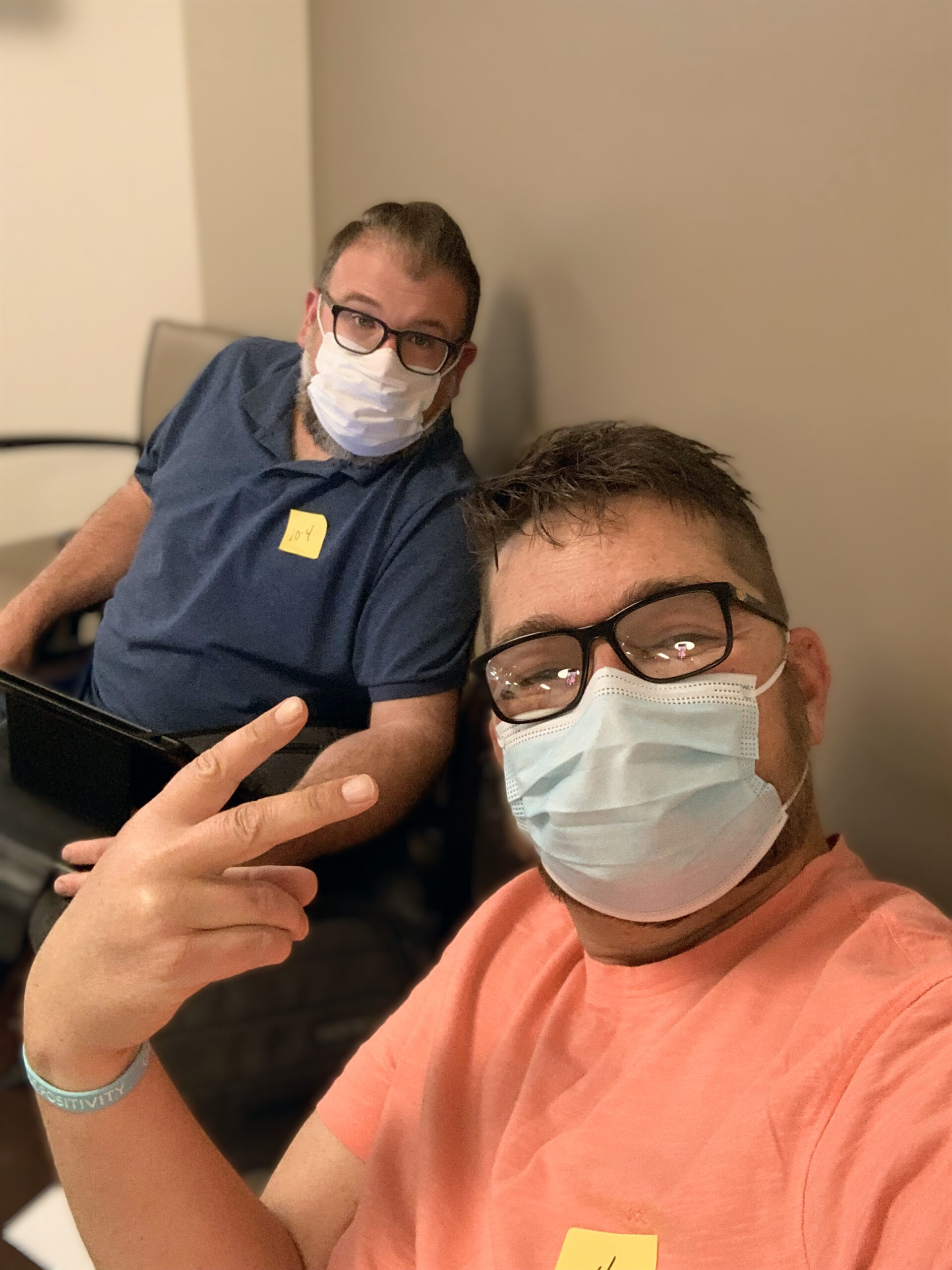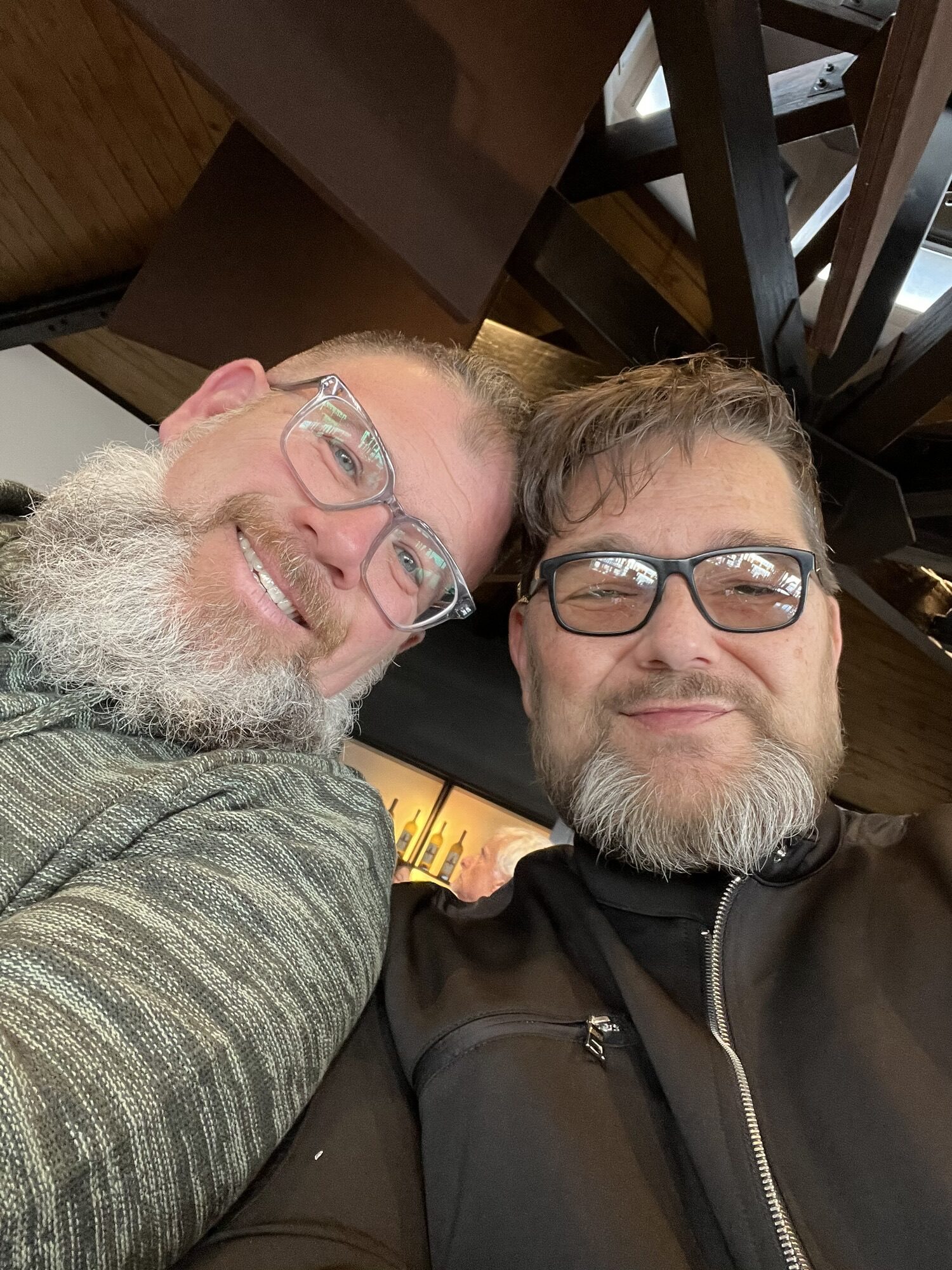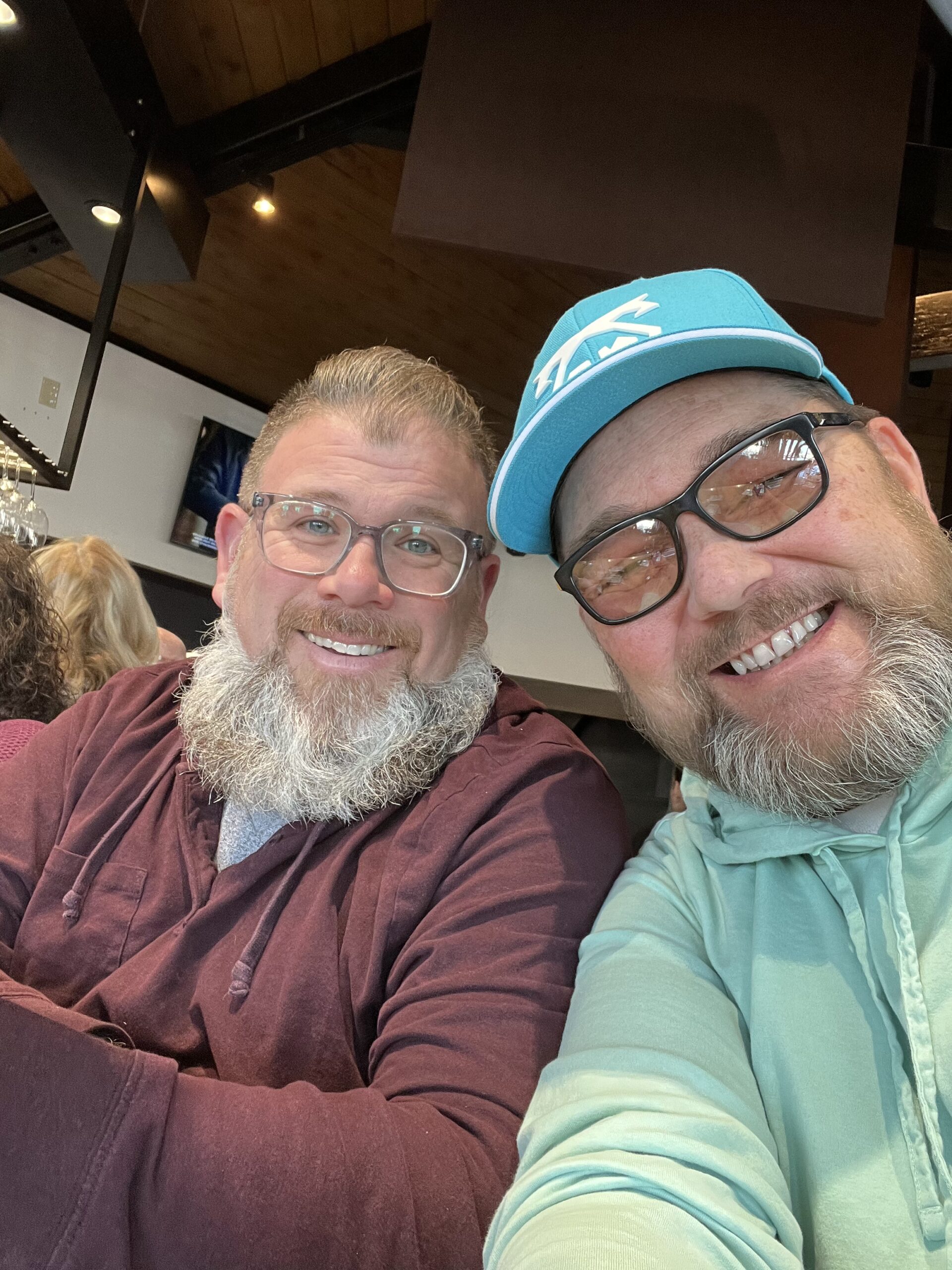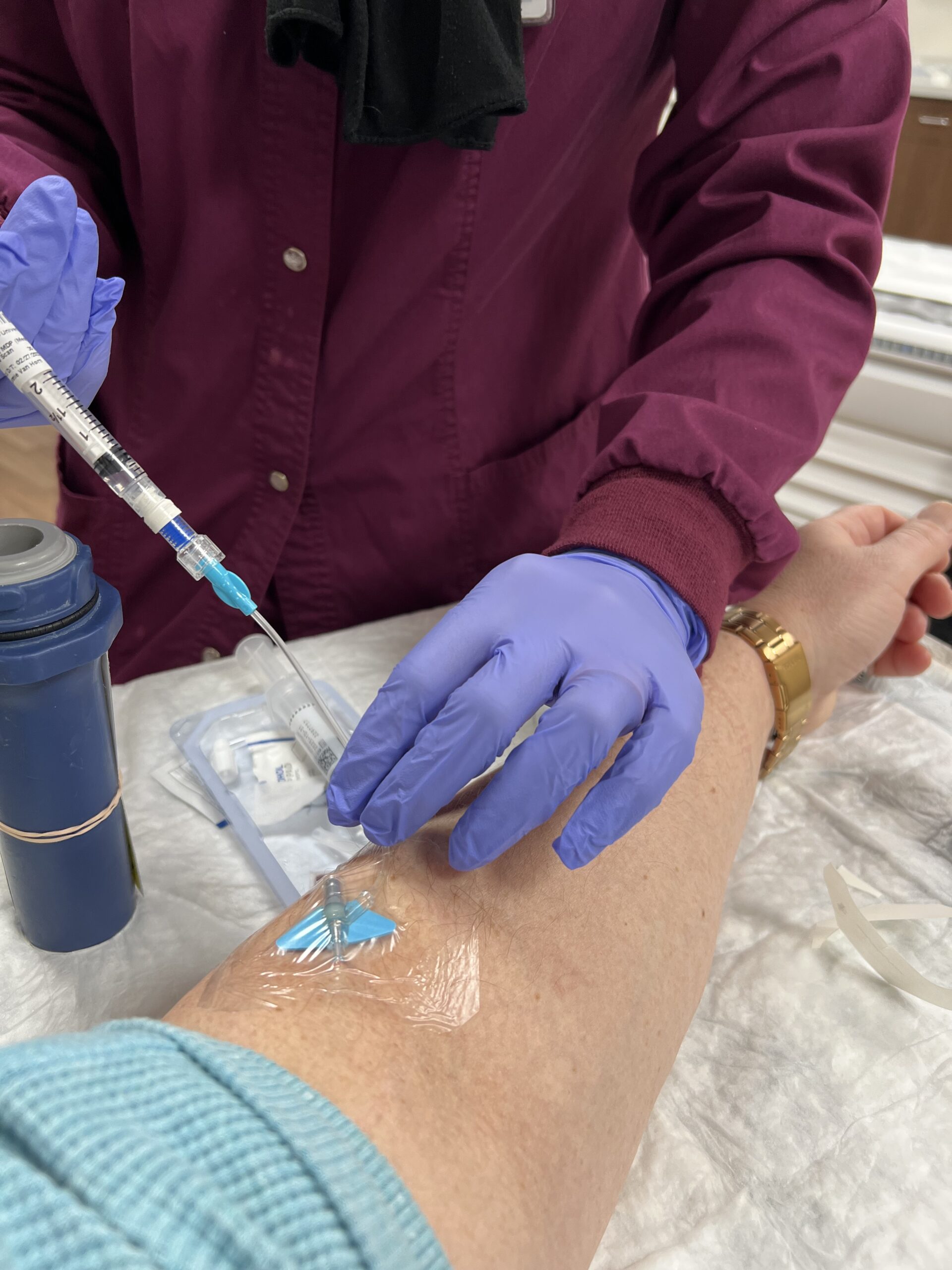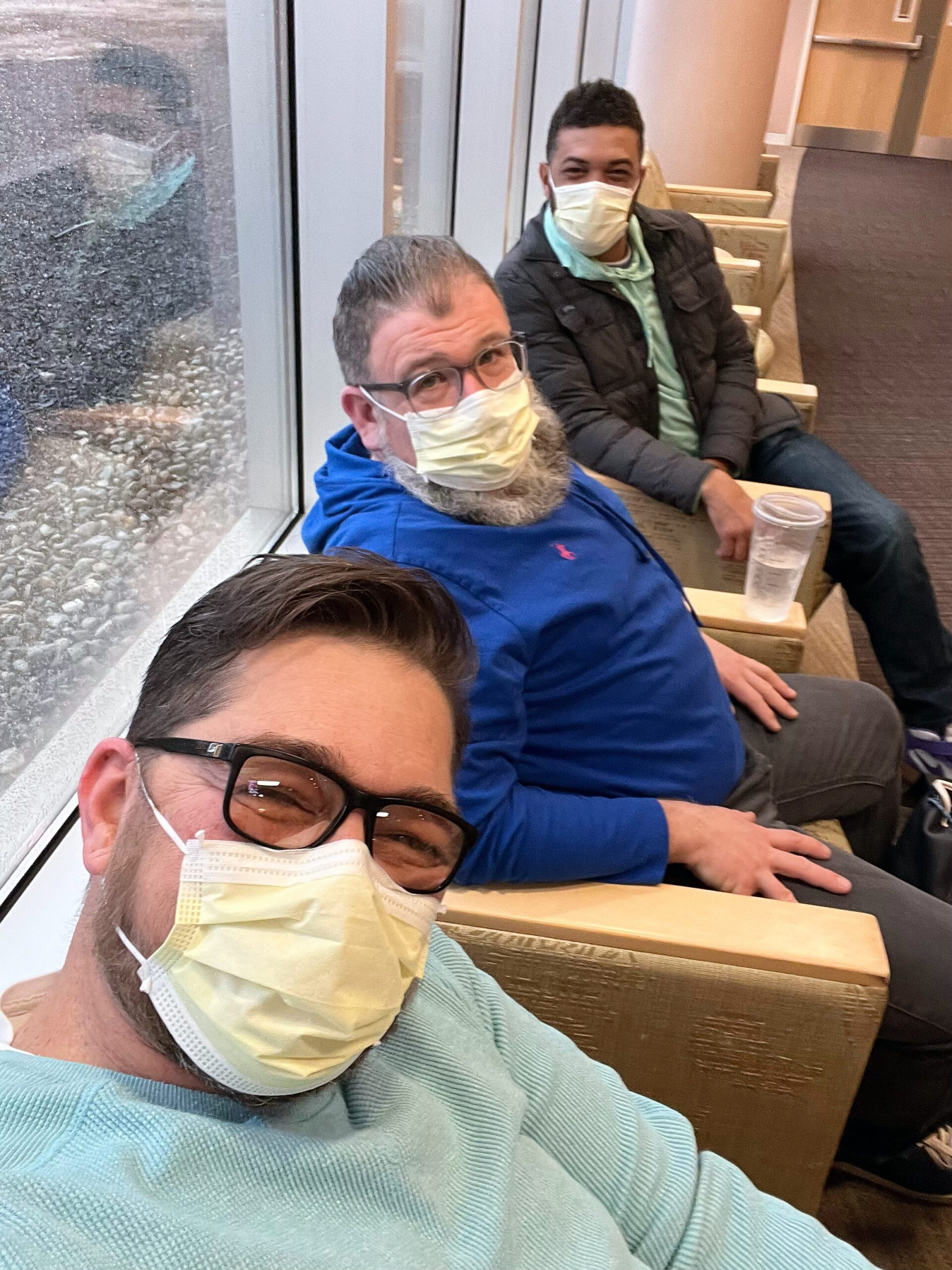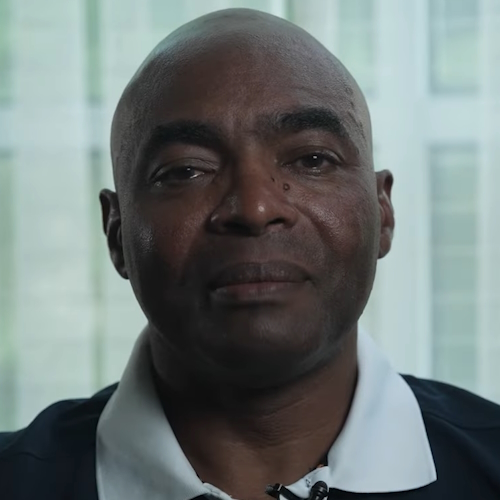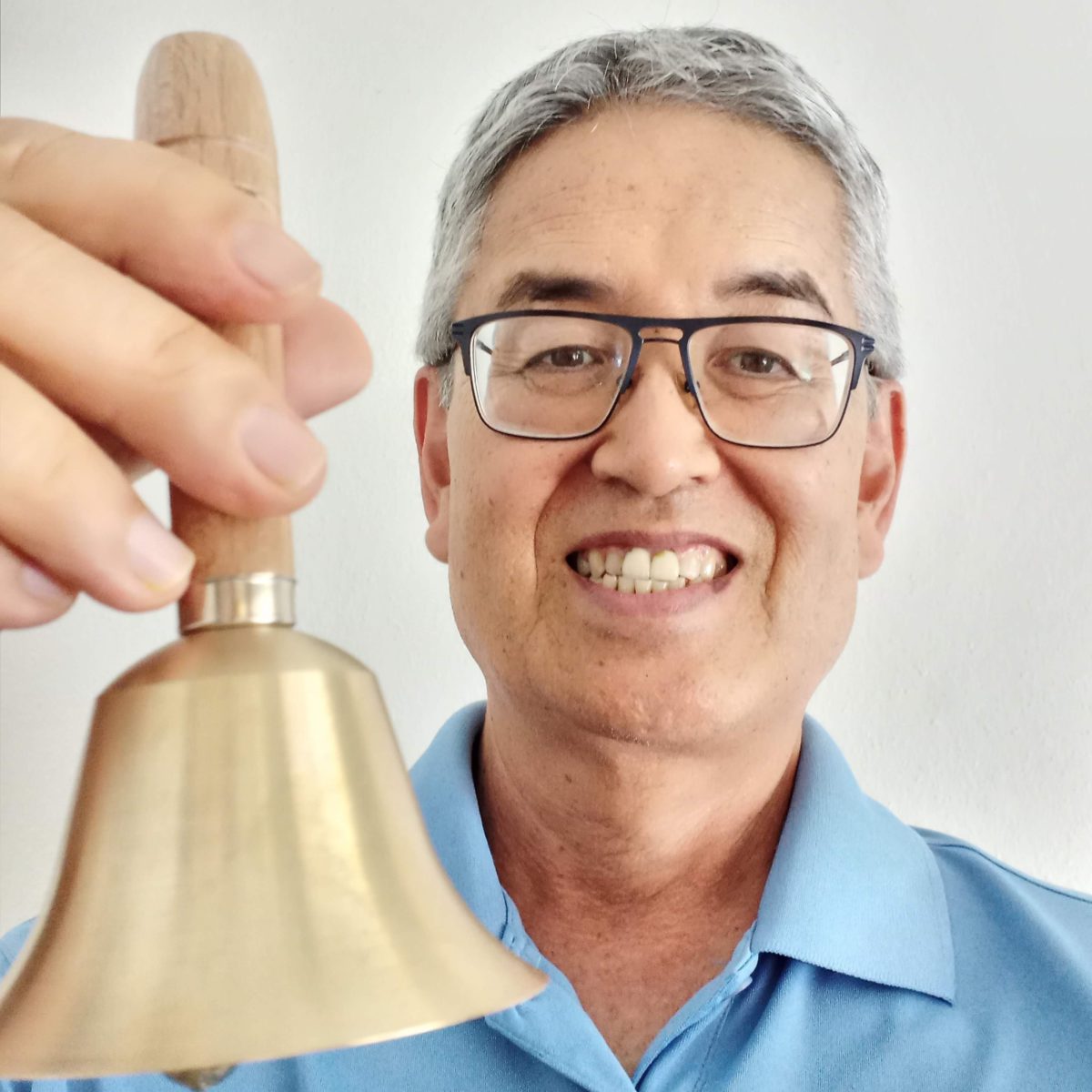Lonnie’s Stage 4 Prostate Cancer Story
Interviewed by: Taylor Scheib
Edited by: Chris Sanchez

Lonnie V., 54, from Indianapolis, IN, was diagnosed with stage 4 prostate cancer in September 2017. Initially, he experienced symptoms like urination issues and general body pain, which were first attributed to a urinary tract infection, then prostatitis. Despite antibiotics, the symptoms persisted. In a critical moment of severe lower body pain, Lonnie visited his doctor, who discovered an irregular prostate during a physical exam and recommended a biopsy. The results, with a PSA level of 685 (normal is below 4), confirmed stage 4 prostate cancer.
The diagnosis brought overwhelming sadness and fear. Lonnie described the period following the diagnosis as disorienting, with a mental state fluctuating between despair and an urgent need to plan for end-of-life arrangements. His oncologist proposed immediate chemotherapy, but Lonnie opted to delay and explore other options. Instead, he began treatment with a testosterone blocker, and made significant lifestyle changes, including altering his diet and abstaining from alcohol, to support his treatment.
Initially, the testosterone blocker effectively lowered Lonnie’s PSA levels, but after 8 months, the cancer became castrate-resistant, meaning the medication was no longer effective. Faced with new treatment options, including clinical trials, Lonnie chose to participate in a clinical trial while continuing his testosterone blocker. Although the trial’s side effects were challenging, the treatment proved successful for almost 3 and a half years, stabilizing his cancer and PSA levels.
As the clinical trial’s effectiveness waned, Lonnie faced rising anxiety. He sought therapy to manage the psychological toll, which helped him cope with the constant fear of the cancer progressing. In January 2023, Lonnie was removed from the trial due to declining efficacy. He then discussed alternative treatments with his oncologist, including chemotherapy, and eventually continued the trial medications outside the trial after they were FDA approved. Despite small increments in PSA levels, the treatment was somewhat effective until October 2023.
Lonnie then decided to take a treatment break in October 2023 after 6 years of continuous treatment, as he felt mentally and physically exhausted. Surprisingly, his PSA levels continued to drop during this break, but a recent PET scan revealed significant new cancer activity, prompting a return to the trial medications.
Throughout his journey, Lonnie has remained motivated by a love for life and a drive to advocate for cancer awareness. He uses his experience and social media presence to support and educate others, particularly on proactive cancer screening and patient advocacy. Despite the hardships, his focus remains on helping others through their own battles with cancer.
In closing, Lonnie advises newly diagnosed cancer patients to take their time and not rush into decisions. His experience highlights the importance of patient education, mental health support, and the resilience required to navigate the complexities of a cancer diagnosis and treatment.
- Name:
- Lonnie V.
- Age at Diagnosis:
- 47
- Diagnosis:
- Prostate cancer
- Staging:
- Stage 4
- Symptoms:
- Urination issues
- General body pain
- Severe lower body pain
- Treatments:
- Hormone therapy
- Targeted therapy (through clinical trial)
- Radiation
This interview has been edited for clarity and length. This is not medical advice. Please consult with your healthcare provider to make informed treatment decisions.
The views and opinions expressed in this interview do not necessarily reflect those of The Patient Story.

Inspired by Lonnie's story?
Share your story, too!
Related Cancer Stories
More Prostate Cancer Stories
Jamel Martin, Son of Prostate Cancer Patient
“Take your time. Be patient with the loved one that you are caregiving for and help them embrace life.”
Joseph M., Prostate Cancer
When Joseph was diagnosed with prostate cancer, the news came as a shock and forced him to face questions about his health, future, and faith. He shares how he navigated his diagnosis, chose robotic surgery, and learned to open up to his loved ones about his health.
Rob M., Prostate Cancer, Stage 4
Symptoms: Burning sensation while urinating, erectile dysfunction
Treatments: Surgeries (radical prostatectomy, artificial urinary sphincter to address incontinence, penile prosthesis), radiation therapy (EBRT), hormone therapy (androgen deprivation therapy or ADT)
John B., Prostate Cancer, Gleason 9, Stage 4A
Symptoms: Nocturia (frequent urination at night), weak stream of urine
Treatments: Surgery (prostatectomy), hormone therapy (androgen deprivation therapy), radiation
Eve G., Prostate Cancer, Gleason 9
Symptom: None; elevated PSA levels detected during annual physicals
Treatments: Surgeries (robot-assisted laparoscopic prostatectomy & bilateral orchiectomy), radiation, hormone therapy
Lonnie V., Prostate Cancer, Stage 4
Symptoms: Urination issues, general body pain, severe lower body pain
Treatments: Hormone therapy, targeted therapy (through clinical trial), radiation
Paul G., Prostate Cancer, Gleason 7
Symptom: None; elevated PSA levels
Treatments: Prostatectomy (surgery), radiation, hormone therapy
Tim J., Prostate Cancer, Stage 1
Symptom: None; elevated PSA levels
Treatments: Prostatectomy (surgery)
Mark K., Prostate Cancer, Stage 4
Symptom: Inability to walk
Treatments: Chemotherapy, monthly injection for lungs
Mical R., Prostate Cancer, Stage 2
Symptom: None; elevated PSA level detected at routine physical
Treatment: Radical prostatectomy (surgery)
Jeffrey P., Prostate Cancer, Gleason 7
Symptom: None; routine PSA test, then IsoPSA test
Treatment: Laparoscopic prostatectomy
Theo W., Prostate Cancer, Gleason 7
Symptom: None; elevated PSA level of 72
Treatments: Surgery, radiation
Dennis G., Prostate Cancer, Gleason 9 (Contained)
Symptoms: Urinating more frequently middle of night, slower urine flow
Treatments: Radical prostatectomy (surgery), salvage radiation, hormone therapy (Lupron)
Bruce M., Prostate Cancer, Stage 4A, Gleason 8/9
Symptom: Urination changes
Treatments: Radical prostatectomy (surgery), salvage radiation, hormone therapy (Casodex & Lupron)
Al Roker, Prostate Cancer, Gleason 7+, Aggressive
Symptom: None; elevated PSA level caught at routine physical
Treatment: Radical prostatectomy (surgery)
Steve R., Prostate Cancer, Stage 4, Gleason 6
Symptom: Rising PSA level
Treatments: IMRT (radiation therapy), brachytherapy, surgery, and lutetium-177
Clarence S., Prostate Cancer, Low Gleason Score
Symptom: None; fluctuating PSA levels
Treatment: Radical prostatectomy (surgery)












